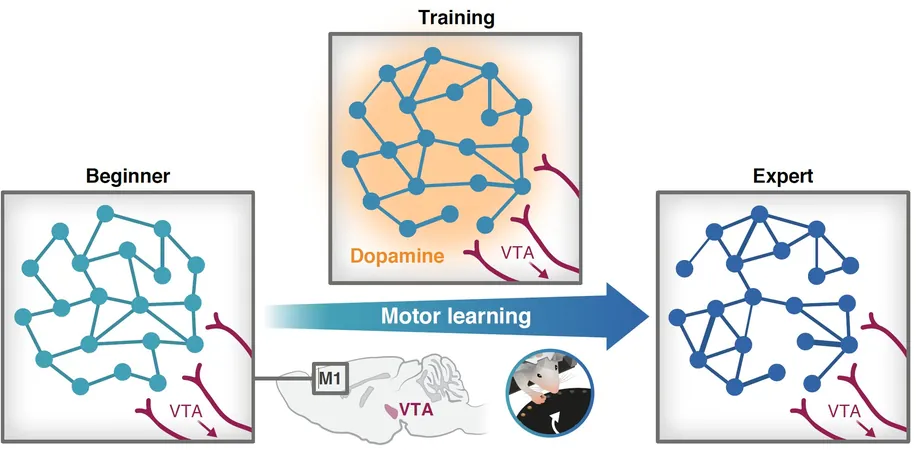
Survivors of ‘Revenge Porn’ Speak Out: “Will They Take Pictures When I’m Not Looking?”
2025-04-05
Author: Ming
In Singapore, the painful reality of image-based sexual abuse (IBSA), popularly known as "revenge porn", is becoming increasingly prevalent. The traumatic experiences of victims reveal a dark web of betrayal and exploitation, primarily experienced by young people navigating relationships in a digital age.
Nora, a university graduate in her 20s, discovered in early 2024 that her boyfriend had been sharing intimate photos of her without consent. "I never suspected it. It kind of knocked the wind out of me, and I just went into shock," she recounted. The incident shattered her and ultimately ended their tumultuous year-long relationship. Despite her efforts to erase the incriminating images from his phone, the haunting uncertainty of what else he may have shared lingers.
While seeking counseling helped, she kept her ordeal secret from family, fearing the investigation and reliving the trauma through questioning by authorities. "I didn’t want to provoke him; I really wanted to just move on," she reflected.
Nora is not alone; she is part of a disturbing trend. Research indicates that over 20% of individuals surveyed in a 2025 study across ten countries, including Singapore, reported experiencing IBSA. Organizations like SG Her Empowerment (SHE) are witnessing a growing number of victims reaching out for assistance—46 cases in 2024 compared to 27 in 2023. This spike indicates a rising awareness of the issue but also a still prominent stigma that prevents many from seeking help.
The complexities surrounding IBSA are exacerbated by deeply entrenched victim-blaming attitudes. Survivors often grapple with feelings of guilt and shame, questioning their own actions. Sarah, a 25-year-old student, recalls how her former partner turned intimate moments into weapons against her; after breaking up, he threatened her with secretly taken pictures. In reporting the abuse, she faced a prolonged process fraught with anxiety about what might happen. "Everything from there to the day they told me the pictures were deleted was just a waiting game," she lamented.
The fear of digital permanence haunts survivors. In a world where once-shared images can resurface indefinitely, Vayu, a gay man, faced the unsettling reality when a former sexual partner posted a video online without consent. Struggling with stigma, he kept the incident secret out of fear of judgment.
The emergence of artificial intelligence and a burgeoning underground economy surrounding non-consensually obtained content adds more layers to the problem. In 2021, a Telegram group administrator was jailed for sharing thousands of explicit images, many of which were taken without consent. The accessibility of such content raises urgent questions about consent and the ethics of digital communication.
Against this backdrop, it's clear that societal attitudes need to shift. Survivors often feel isolated, believing that they cannot speak out without facing ridicule or disbelief. "Because you’re in a relationship, you feel pressured," one survivor shared, reflecting on how relationship dynamics can lead to disastrous outcomes.
Organizations like Aware are advocating for systemic change, emphasizing the need for comprehensive sex education that prioritizes consent and healthy boundaries. New laws in Singapore, such as the Online Safety (Miscellaneous Amendments) Act, are also emerging, aiming to hold platforms accountable for the spread of harmful content.
Despite these steps, many survivors feel that the journey to justice is fraught with obstacles. Charlotte, another survivor, describes her distressing experience with authorities, feeling as though she was putting her life on hold awaiting validation from the system. She and other survivors have formed communities to support one another and find strength amidst the complexities of healing.
Experiences of IBSA strike at the very core of personal autonomy and mental health, necessitating substantial cultural shifts to eradicate the stigma and empower survivors. Moving forward, advocates for change emphasize that the fight against such abuses is ongoing, demanding both awareness and action to safeguard the rights and dignity of all individuals in a digitally interconnected world.
As societal understanding of these violations grows, it is essential to continue fostering platforms for survivors to share their voices and reclaim their narratives, ensuring that the pain of betrayal does not define their lives.




 Brasil (PT)
Brasil (PT)
 Canada (EN)
Canada (EN)
 Chile (ES)
Chile (ES)
 Česko (CS)
Česko (CS)
 대한민국 (KO)
대한민국 (KO)
 España (ES)
España (ES)
 France (FR)
France (FR)
 Hong Kong (EN)
Hong Kong (EN)
 Italia (IT)
Italia (IT)
 日本 (JA)
日本 (JA)
 Magyarország (HU)
Magyarország (HU)
 Norge (NO)
Norge (NO)
 Polska (PL)
Polska (PL)
 Schweiz (DE)
Schweiz (DE)
 Singapore (EN)
Singapore (EN)
 Sverige (SV)
Sverige (SV)
 Suomi (FI)
Suomi (FI)
 Türkiye (TR)
Türkiye (TR)
 الإمارات العربية المتحدة (AR)
الإمارات العربية المتحدة (AR)